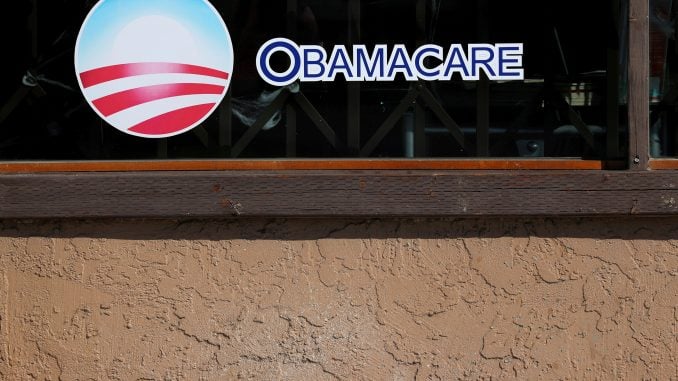
WASHINGTON, D.C. – North Carolina Attorney General Josh Stein signed up the state to a lawsuit against President Donald Trump after the administration decided to end Obamacare subsidies. N.C. is one of 18 states who sued the Trump administration on Friday to stop him from scrapping the critical element of the Affordable Care Act.
The 2010 law enacted by his Democratic predecessor Barack Obama relied on taxpayer-paid subsidies, called “cost-sharing reductions” (CSR), that cost $7 billion this year and were estimated at $10 billion for 2018, according to congressional analysts.
“As far as the subsidies are concerned, I don’t want to make the insurance companies rich,” Trump told reporters at the White House. “They’re making a fortune by getting that kind of money.”
Republicans say that the subsidies were never legal because Obama enacted the federal expenditure through executive order, not the legislative process. North Carolina Gov. Roy Cooper and Stein joined other Democrats accusing Trump of sabotaging the law.
“I am suing President Trump today for his unlawful and reckless decision to stop payments that help hundreds of thousands of North Carolinians afford health insurance,” said Stein in a statement released on Twitter.
Democratic attorneys general from the 18 states as well as Washington, D.C., filed the lawsuit in federal court in California on Friday. The states include: California, Connecticut, Delaware, Kentucky, Illinois, Iowa, Maryland, Massachusetts, Minnesota, New Mexico, New York, North Carolina, Oregon, Pennsylvania, Rhode Island, Vermont, Virginia and Washington state.
The states asked the court to force Trump to make the next subsidies payment to insurance companies. Legal experts said the states were likely to face an uphill battle in court. Trump’s action came just weeks before the period starting on Nov. 1 when individuals have to begin enrolling for 2018 insurance coverage through the law’s marketplaces.
The administration will not make the next payment to insurers, scheduled for Wednesday, U.S. Attorney General Jeff Sessions said. Trump criticized the subsidies as “a disgrace” and “a total gift” to insurers, while Democrats say that canceling the subsidies would drive up premiums.
“We’ll negotiate some deal that’s good for everybody. But they’re (Democrats) always a bloc vote against everything. They’re like obstructionists,” Trump told reporters.
The Senate failed in both July and September to pass legislation backed by Trump to repeal the Affordable Care Act, often called Obamacare, due to opposition by a handful of Republican senators. One of them, Sen. Susan Collins, a moderate Republican from Maine who had been contemplating running for governor next year, on Friday said she planned to remain in the Senate and would use her voice in reforming the health care system.
In a press conference held in the White House Rose Garden Monday, Trump and Senate Majority leader Mitch McConnell (R-Ky.) tried to move past the tensions over efforts to repeal Obamacare with a show of unity.
“Despite what we read, we’re probably now — I think at least as far as I’m concerned — closer than every before,” Trump said at the press conference with McConnell. “The relationship is very good. We’re fighting for the same thing — we’re fighting for lower taxes, big tax cuts, the biggest tax cuts in the history of our nation.”
Trump expressed optimism that Republicans and Democrats in Congress will also be able to craft a short-term fix for health care insurance markets.
“I think we’ll have a short-term fix and then we’ll have a long-term fix, and that will take place probably in March or April,” Trump said.
Sens. Lamar Alexander (R-Tenn.) and Patty Murray (D-Wash.) have been trying to craft a bipartisan deal aimed at helping stabilize health insurance markets under Obamacare.
Congressional aides have said that such a deal could include two years of funding to continue the subsidies that Trump has revoked, coupled with new flexibility for states on their handling of some Obamacare provisions.
“The president is not going to continue to throw good money after bad, give $7 billion to insurance companies unless something changes about Obamacare that would justify it. It’s got to be a good deal,” said Sen. Lindsey Graham (R-S.C.).
In N.C. 480,000 residents across the state signed up for health insurance through the exchange, but 80 percent of them had just one option of carrier after UnitedHealthcare and Aetna dropped out saying that even with the subsidies, it was too expensive for them to participate. Now Blue Cross and Blue Shield is the only option for most N.C. participants. However, Trump signed another executive order last week that allows consumers to buy scaled-down insurance across state lines.



